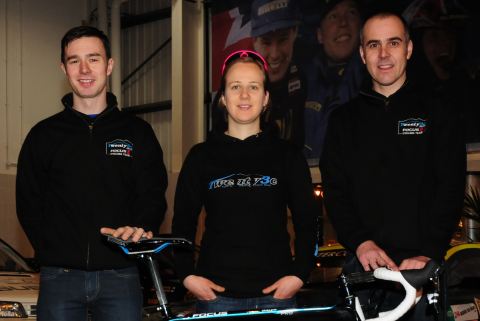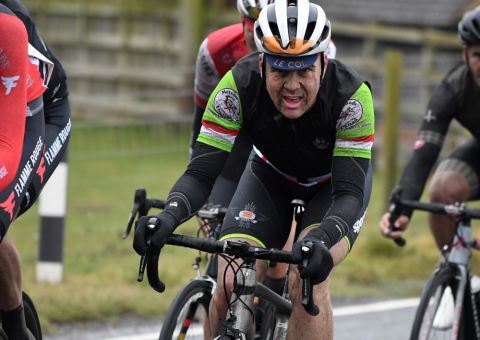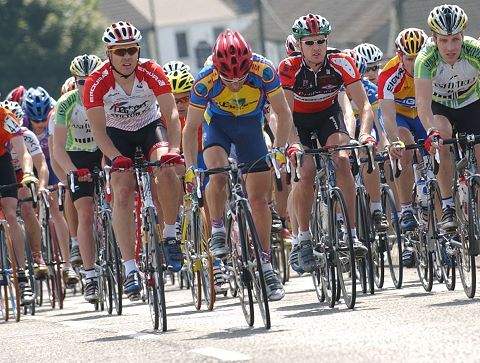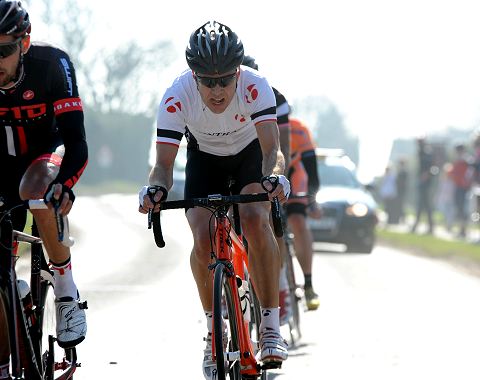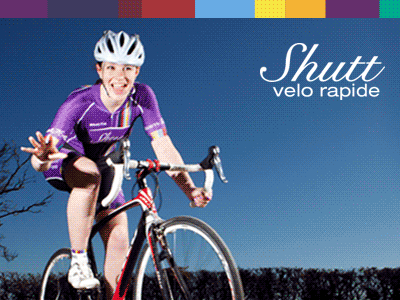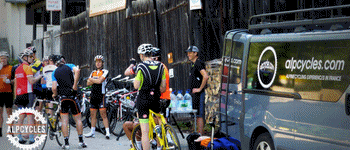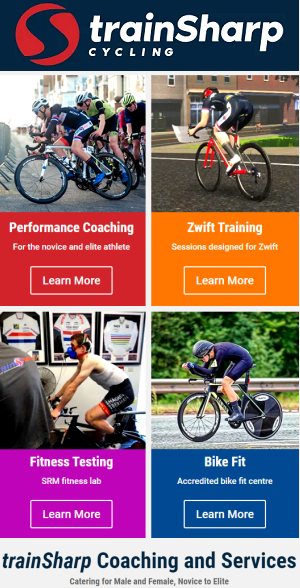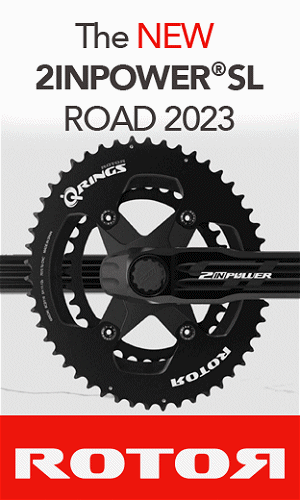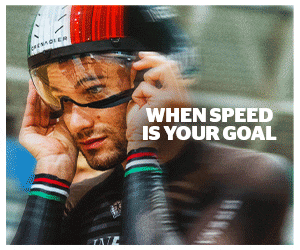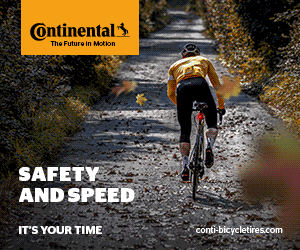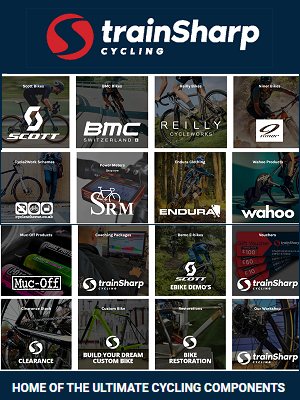Within the sport of cycling are many riders who have raced at the top level in Britain and now manage teams – one such rider is Andy Lyons, boss with Dean Shannon at Richardsons Trek racing team with many decades of experience of the sport behind him.
Feature Interview: Andy Lyons
– How long have you been running cycling teams for various sponsors?
Andy: Nine years or so. It was never an intention to run a cycling team. Dean Shannon and myself were the two senior riders at the Twenty 3c Orbea team (below) when the team manager decided he needed a break. We had sponsors in place and a lot of young riders who wanted to carry on so we decided to take up the reins and give it a go rather than walk away and it has just kind of carried on. We morphed into Richardsons Trek and with some really loyal sponsors who want to put something back into the sport, we’ve been able to grow it slightly each season.
– What is the smallest budget you have managed to put a team onto the road …
Andy: In the initial years, when we took over the team, we had kit, bikes and probably a £5k annual race budget which doesn’t go far at all. Things have improved no end now but racing is getting more and more expensive so the better the budget, the better race programme you can give the riders.
– How do you manage to balance running a team and working full time?
Andy: With difficulty! Dean and I still run the team together and we have assumed various roles each to share the load. We are fortunate we are both self employed so can be flexible with working hours which means we can get away quite easily if need be. Steve Skuse has been instrumental in his support and we couldn’t do it without the support of family and friends.
– When will you be launching the team and revealing the new sponsor(s) and riders?
Andy: Hopefully soon, it’s been a bit difficult with logistics this winter because I am working away in Switzerland but we should be able to firm a few things up.
– How many riders in this years team?
Andy: Probably 12. If we get too big, it means that we can’t give all of the team the opportunities that they need to progress. We like to try and give every rider the chance to ride the bigger races so with say a 12 or 13 man team you can generally keep everyone happy.
– What are the key things you look for in a rider when asking them to join the team?
Andy: I’ll be honest, we are an amateur team and all of the time we give to the team is our own time so it’s important we like the riders from a personal perspective. However we’d be looking for riders with ambition and dedication and also with good results at Nat B level, although that’s not necessarily our primary goal. We really want to see riders committed to succeeding. We put hours and hours into the team and we want our riders to be equally committed and if they are, then we can’t ask much more. You’ll also notice we are predominantly an Eastern region team and where possible we try and take riders from the region but they would need to show that they are already at a level where we can take them to National A events.
– Do you find riders approaching you for team places?
Andy: Yes, absolutely and we try and reply to all of them personally but we do get inundated with requests. We’d love to be able to help more riders but there are only so many places we can fill.
The Wadley either seems to have lovely sunny weather or grim wet gritty weather – above was a wet gritty year!
– What’s the hardest thing about running a team besides finding a sponsor with deep pockets? Travel, logistics, managing riders, paperwork with BC?
Andy: Time would be the biggest problem. People just don’t realise how time consuming it is. Once you’ve been doing it a few years, things fall into a routine, so arranging kit, sorting logistics etc nothing is particularly hard, it’s just finding time to do it all!
– What are the key differences between when you raced the prems and now?
Andy: I don’t actually see a massive difference in the way the races are ridden. The average speeds are similar but now I think with the advances in training techniques you have more guys at a higher level so the overall quality of field is more competitive. We’ve had periods where the races were controlled by the bigger teams in the past, particularly when the pro scene collapsed in the early 1990’s and they amalgamated the amateur and pro races. That changed as teams disappeared, then over the last few years they’ve become a bit more controlled again. It’s cyclical and I’m sure it will change again.
– What was your favourite race as a rider?
Andy: It would have to be the GP of Essex. It was a race that inspired me as a youngster. I remember watching Paul Curran and Darryl Webster rip it up one year. I rode out to watch it with a packed lunch and saw them fly past and thought I’d love to be good enough to do that one day. It was always in March so it was always a good reason to have a tough winter.
Back in 2003 at the Five Valleys in Wales
– Your most memorable victory?
Andy: I’m not too sure. I only ever managed 2nd in the GP of Essex but I still look back at that as my most memorable ride because it meant so much to me. I won the KoM trophy in the same race which is quite ironic for Essex.
– With four UCI teams next season, and a lot of riders either retiring or going overseas, do you see the racing changing that much on the road in 2020?
Andy: Yes, I think it will change but maybe not massively. I do think it will allow a smaller team like ours to take a bit more initiative and hopefully get results. What may change things is the way the UCI teams qualify for the ToB. If this is pre selected then the racing should be a bit more open so this season is going to be interesting.
– Back when you were racing the prems, did it feel as professional as it does now and were there many full time riders?
Andy: Yes it did actually feel as professional, particularly from an athletic point of view. You probably had more spectators then as well. The riders were equally professional in their approach and had the same ambitions and there were many full time riders even then, especially in the very early 1990’s when there was still a number of paid pro teams. The current scene definitely appears more professional. Its shiny and looks good but there is an element of smoke and mirrors and social media plays a big part of this. Not many riders will be making a living wage which in my dictionary is the definition of being a professional because there just isn’t the backing or money in the sport at the moment.
Andy racing the Jock Wadley
– Is there anything from a team owners perspective, you’d change about the way the sport is run?
Andy: I wouldn’t call myself a team owner, we are just a couple of guys trying to put something back into the sport and doing what others did for us when we were youngsters. Without the backing of sponsors there is no team so it really is a joint effort from all involved. Back to the question and that’s a massive question and I could go on forever, so maybe a handful of observations…
The people at the top running the sport have to know and understand cycling implicitly and have a love of it and its history and all of its idiosyncrasies. I don’t think that has been the case for some years and I think we are the worse for it. I know it could be argued that sports administration crosses over all sports but I think cycling is unique and very specific and people from a cycling background would be beneficial (feature done before former pro Erick Rowsell was revealed as taking a position at British Cycling).
Secondly, I really would like equality and recognition for the smaller teams. We support the British Calendar and have done for many years but we are still treated as second class citizens because we don’t have a UCI license. We put as much into the sport as any team and we should be treated equally, unfortunately this doesn’t always happen and its usually due to decisions made at the top of the sport.
Lastly, and I’ve read a lot of varying opinions on this, race courses! Some seem to think that it needs to be as big a lap as possible with the biggest hills possible? Yes that’s great in some cases but small laps work equally well. It’s about the riders, they make the race. Spectators don’t necessarily want to stand by the side of the road and watch a race pass three times in 100 miles. Races like the Lincoln GP and for those that remember it, the Tom Simpson Memorial, work because they engage the spectators like a kermesse in Belgium or France.
It’s a bit like crits, why make them so technical so there are only 10 blokes riding round after 15 minutes? I remember watching the Kelloggs Series as a lad and the spectacle of watching a full peloton on some of the least technical courses were the races that were the best for spectators and fans alike… I could go on but its not an easy question!
… continued after advert
– Life in the convoy – do the riders keep you busy coming back for bottles & gels or is it just a waiting game in case of an issue with a rider…
Andy: It depends on the course and the way the race is going. We would always have support in the feed so that riders don’t have to drop back for bottles unless its a hot day so dropping back isn’t always necessary unless its an emergency or a mechanical. Some races it would be nice to be called up because it can get very boring in a race convoy.
– You have a rider in a break, do you go up behind them or stay in the peloton to support the other riders?
Andy: Again, really depends on the race and the position in the race. If it’s looking like a winning move and you know you need to be there just in case, then stick behind the break (especially if neutral service have got the bunch covered). If it’s early or mid race and we think it will come back, then stay behind the bunch so we’ve got the whole team covered. You have to consider each scenario on its merits and what will benefit the team more as a whole.
… continued after advert
– What are the ideal objectives for your riders in a race besides getting a good result?
Andy: Obviously getting a good result would be our first priority but riding as a team and feeling like all riders have played a part is important and actually coming away from a race knowing the lads gave 100% and they couldn’t have done any better (that’s really all we can ask). But even seeing improvements in riders is an objective. So if one season, they are getting top 30s in Nat A’s and the next season they are getting top 20’s, then thats a huge improvement especially for riders that work full time. It’s about helping them develop.
– Most enjoyable race for the team in 2019?
Andy: We had quite a few enjoyable races in 2019; Lancaster GP, Manx, National RR, Stockton, National Crit and Three Days of Cherbourg spring to mind.
– Best result in 2019?
Andy: On paper it has to be Isaac’s Silver medal in the National Crit Champs but we had a number of good results and they came from all riders across the team but James, Joe and Pete stepped up particularly (I have to mention our most winningest rider as well, Simon Alexander, a real stalwart of the team).
– Toughest race for your riders in 2019?
Andy: There were many. The last stage of Manx was tough and so was Ryedale but I guess in terms of quality, the three days of Cherbourg was hard but equally enjoyable.
– Most disappointing moment in a race in 2019?
Andy: Back to the National Circuit Race Champs and Isaac’s silver. With 75 metres to go he had it won but pulled his foot out and had to settle for the silver which was still a stunning ride. The only time I’ve ever experienced such a change in emotions was the 2006 FA Cup Final. Into extra time and West Ham were leading Liverpool 3-2 and I was on the ceiling, then Steven Gerrard scored a wonder goal and we lost on penalties !! (sorry I couldn’t resist a football analogy)
– Will you be racing in 2020 and if so, what sort of events are you able to fit in around the team schedule?
Andy: Yes, I’m sure I’ll pin a number on at some point. I’ll hopefully be fit for the Jock Wadley Memorial (it’s my favourite local race) and see what happens after that. The season gets very busy with team duties from April onwards so I’ll have to play it by ear after that.
– Finally, what are the key goals for 2020?
Andy: Realistically much the same as 2019 but hopefully slightly better results. Young Joe Sutton took the step up to UCI Conti for 2020 so if we can help another one of the youngsters and improve on our 2019 results that will be a bonus. A Premier Calendar podium would be nice though and we know the lads have got the ability. However, above all its about enjoying it and riding as a team and if the results come then great.
Thank you Andy for the insights and good luck to the team in 2020
Cycle Division’s Shop
Send your results as well as club, team & event news here
Other Results on VeloUK (including reports containing results)
- RR Result: East Cleveland Classic
- Features, Reports, Results
- Q&A: Charlie Abraham (Lee Valley Youth Junior Cycling Team)
- Events: SSSCCRRL Road Race League
- Youth Result: Isle of Man Youth League
- Youth Result: Lawford Youth Series (Curborough) #2
- Crit Result: Full Gas Summer Circuit Series #2
- Crit Result: Ride Flux Spring Crit series #2
- Youth Result: Maindy Flyers Freewheel League 1
- Ribble Collective: Ride More in ’24
- Crit Result: Tameside Cycling Development Circuit Races 1
- Crit Result: 2024 West Thames League 1
- Startlist: The Drummond Trophy
- TT Result: VTTA Surrey/Sussex 10 mile TT
- EVENTS: Proper Northern Road Races – Round 2 Oakenclough
- TTT Result: Scorton TTT
- TT Result: Manchester & District TTA 25m TT
- TT Result: Stowmarket & District CC 15m TT
- TT Result: Paceline RT Sporting TT
- TT Result: Hereford & District Wheelers 25m TT
- RR Result: Yorkshire RRL #1
- Crit Result: Scottish Student Cycling Criterium Championships
- Events: Dave Peck Memorial
- TT Result: Blaydon CC Two Up TT
- TT Result: Kent CA 10m TT
- TT Result: Wessex RC 24m TT
- TT Result: Easterley RC 25m TT
- TT Result: Cranbrook CC 10m TT
- TT Result: Penzance Wheelers 12.5m TT
- TT Result: Fife Century RC 25m TT
- TT Result: Bramley Wheelers 10m TT
- TT Result: Mid Shropshire Wheelers 25m TT
- Youth Result: Hog Hill GP (National Youth Series)
- RR Result: Velo Club Venta Spring Road Race
- News: Women’s Tour of Britain
- Crit Result: Ennerdale Season Openers 2
- RR Result: NCRA Handicap RR (week 5)
- RR Result: Surrey League 2/3 (April 14)
- Report/Result: TLI Cycling Dave Astles Memorial Races
- RR Result: Cadence Junior Road Race
- Crit Result: Matlock CC Darley Moor Circuit Race #1
Other News on VeloUK
- Events: SSSCCRRL Road Race League
- Ribble Collective: Ride More in ’24
- Startlist: The Drummond Trophy
- EVENTS: Proper Northern Road Races – Round 2 Oakenclough
- Events: Dave Peck Memorial
- News: Women’s Tour of Britain
- Startlist: PB Performance Espoirs Road Race
- East Cleveland Classic: Saint Piran Team
- News: New kit for Ribble Rebellion Riders
- Events: Halesowen Friday Track Nights
- Team News: Ribble Rebellion off to the USA
- News: Pedal Club Lunch (March)
- Rider News: Winning start for Billy Ladle
- News: CiCLE Classic 2024
- Startlist: Stars of the SW Men’s U23 RR
- Startlist: Danum Trophy 2024 (Nat B)
- Startlists: London Dynamo Road Races
- Startlist: La Fleche Waltonne Road Races (BMCR)
- Meet Ribble HoloRider
- Startlists: East Cleveland Classic 2024
- Former Winners: Lincoln Grand Prix
- Chris Lawless Joins Saint Piran Team
- Paracycling Track Worlds Day 4
- Para CyclingWorlds Final Day
- Startlist: National Youth Circuit Series Rd 1
- Report/Result: Azets Spring Classic
- Startlists: RCR Fat Creations Road Races
- Startlist: Capernwray Road Race (March 31)
- Team Report: Fensham Howes MAS Design Junior Team
- Team Report: CiCLE Classic Junior Men
- RIDER REPORTS – Zoe Parker (Solihull CC)
- GB News: Two World Titles for GB at Para Worlds
- Team News: Alba Development Road Team
- News: British Road Champs Return to NE
- THIS WEEKEND: Peaks Two Day is Back!
- News: Laura Kenny Retires
- Team News: Lee Valley Youth Cycling Team
- 2024/25 CYCLO-CROSS CALENDAR
- Startlist: Cardiff Ajax CC 10 Mile TT
- Startlists: 16th Gifford Road Races (Scotland)






